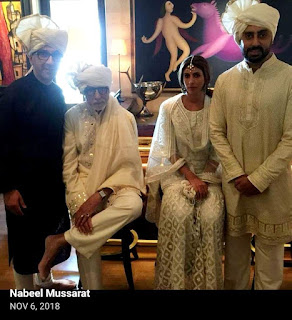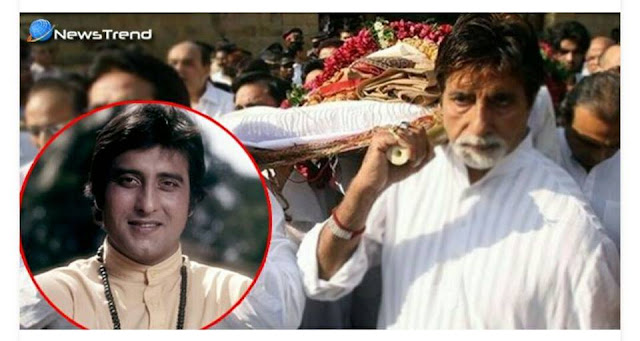During
my recent two-day stint at the hospital, during which I had to undergo a
long-pending surgery due to an internal haemorrhaging issue in the lower
abdominal region, I had the opportunity to re-visit some of my all-time
favourite Kishore Kumar-Lata Mangeshkar duets composed by—who else?—RD Burman. I
shared these songs on a Facebook forum dedicated to Pancham, but then, I thought,
why not compile the separate entries in one place?
So
here it is, my thoughts on some of the finest RDB-KK-Lata collaborations (in no particular order), dedicated
to the Nightingale of India, the best Music Director India has ever produced, and
the greatest (male) singer of India in his birth month. Enjoy!
[Picture Courtesy: Google Images, edited]
- Jagir (1984): “Chor tera naam
hai”
[Tin Murti (1982): “Churi chhara
kaj nei”]
One of the more fun, peppy romantic
duets of KK & Lata.
Shakti Samanta in the 70s and the
80s specialized in making Bangla-Hindi bilinguals, like Amanush-Amanush, Ananda Ashram-Anand
Ashram, Anyay Abichar-Aar Paar, Andha Bichar-Dushman, ANUSANDHAN-BARSAAT
KI EK RAAT, etc. Samanta used to shoot every single scene in these
films of his twice, once in Bangla and once in Hindi. Pramod Chakravorty joined
the bilingual bandwagon with the superhit entertainer Teen Murti-Jagir in 82/84, but the difference
was, Chakravorty only shot the scenes
twice; the songs were shot only once,
in Hindi, and used in the Bangla version as-is, with the songs dubbed over. This
is why the lip-sync is off in the Bangla version. Watch the Bangla version of this
song after the Hindi version and you'll know what I mean.
Nevertheless, that does not take anything away from this playful,
naughty number. Both KK and Lata were well into their 50s when this song was done,
yet they sound as youthful as the lead pair looks. Mithun is at his charming best,
and although Shoma Anand could never really make it big as a heroine, she looks
incredibly pretty in this song (and a bit like one of my paternal cousins). One
other unique thing about this song is: despite being a romantic number, this one
is as foot-tapping and dance-worthy as can be.
- Aandhi (1975): “Tum aa gaye ho”
If “Tere bina zindagi se koi” is a
musing on a life of lost opportunities and “Iss mod se jaate hain” talks about the
opportunities that stare one in the face at the beginning of youth and love, then
“Tum aa gaye ho” is the quintessential ‘while in love’ ditty that completes the
cycle by putting in the place the 2nd of the three phases of love.
Suchitra Sen was an unusual choice; she came into the film when the
original choice, Vyjayanthimala, declined as she was too much in awe of a certain
Mrs. Gandhi, and surrendered completely to Gulzar's vision w/o demanding the slightest
change anywhere in the script, unlike an earlier occasion when she demanded
several changes in the script and Gulzar was compelled to say no to her. In this
song, her heavy-duty makeup and her age show through—she was in her mid-40s
when she did Aandhi—but the song itself,
and the acting of the seasoned lead pair, one a fan favourite and the other a director's
joy, more than make up for it.
- Nehle Pe Dehlaa (1976): “Saawan ka maheena aa gaya”
For me, the USP of this song, apart
from the music, of course, is not KK, neither Lata, neither a very handsome-looking
Sunil Dutt, but the stunningly gorgeous, the absolutely divine Saira Banu. I'd marry her. Any day.
Feast your eyes, ladies and gentlemen,
on this heavenly queen of oomph!
- Bade Dil Wala (1983): “Tujhme kya hai deewane”
The third of the delightful KK-Lata
duets from Bade Dil Wala, and this one
is a classic romantic number. “Kaho kaise rasta bhool pade” is playfully romantic
in tone, but is not picturised on the romantic leads; “Kahin na jaa” is more about
lending emotional support to the partner in times of crisis. But this one hits the
sweet spot of the bat much like “Saagar kinare” from Saagar, “Kasme Vaade nibhayenge hum”, and “Deewana karke chhodoge”
from Mere Jeevan Saathi.
The one thing about this song that strikes me is how much, orchestration-wise, this resembles
the Lata solo “Aisa samaa na hota” from Zameen
Aasmaan, which came a year or so after BDW.
It is possible that both songs were composed more or less together; BDW came later, maybe as a result of Chintu’s
well-known tardiness (but this is conjecture on my part). However, it is entirely
probably that whichever song was recorded first occupied RD’s mindscape significantly
enough to influence the one that was recorded second. “Tujhme kya hai” has more
of Lata than of KK, and RD gives her the same high notes in this one as in “Aisa
samaa”. And like “Saagar kinare”, all the BDW
songs have a very, very contemporary feel.
And yes, “Tujhme kya hai” also has
a lot of similarities with “Jaane kaise kab kahan” from SHAKTI. It's like “Jaane kaise”
is the eldest sibling, “Tujh mein kya hai” is the middle sibling, and “Aisa samaa”
is the youngest sibling.
- Bade
Dil Wala (1983): “Kaho kaise rasta bhool pade”
A return
to gypsy camp after a long time since “Mehbooba Mehbooba” from SHOLAY
and “Dilbar dil se pyaare” from Caravan.
In the meanwhile, we have been subjected to the terrible “Kamaal hai kamaal hai”
by Laxmi-Pyare in Karz, an otherwise fine
album. And once again, like “Dilbar dil se pyaare”, it is Lata and not Asha doing
the honours.
Musically,
BDW is the best album among Bhappi Sonie's
entire body of work, much better than anything he did with Shankar-Jaikishen or
anyone else. BDW, Saagar, and Sitamgar are like Mere Jeevan
Saathi of the 80s: flawless albums, less than desirable box office performances
of the films.
For
a long time, songs were seen as a tool, a means of releasing the tension that has
been building up in the on-screen narrative (“Khaike paan Banaras-wala” from DON
is the best example). This one is another fine example of a song being used to ease
up on the tension: the hero, accused of a murder he didn't commit (very Vijay Anand-ish),
is fleeing and comes upon a gypsy camp, where he and the gypsy girl hit it off and
they break into a song. Not a strictly romantic song, but can easily be construed
as one, given the chemistry of the singing-dancing pair and the lyrics. Close your
eyes and you'll feel that this is a repartee between a romantic couple.
- Alag
Alag (1985): “Kuchh humko tumse”
The music in Kaka's
penultimate home production was criticized by some for being “Laxmikant-Pyarelal-ish”
for the use of dholak beats. The film, or its box-office performance, takes nothing
away from this childhood favourite album of mine. What a delightful song!
- SHAKTI (1982): “Jaane kaise kab
kahan”
Another top-notch KK-Lata number,
but one with a twist: all the romantic frolicking turns into a sensuously-charged
coming together of body and soul. Note how the tone of the song changes—to one of
long-anticipated physical union as the song moves to the 3rd antara.
This is also one of AB’s most romantic numbers, along with “Kasme
Vaade nibhayenge hum” and MUQADDAR KA SIKANDAR’s “O saathi rey”
by Kalyanji-Anandji.
- KASME
VAADE (1978): “Kasme vaade nibhayenge hum”
Along with “Saagar
kinare”, this one is THE definitive KK-Lata duet. Do I really need to elaborate
on this?
https://www.youtube.com/watch?v=W68p7_MYPF8
- Aanchal (1980): "Bas meri jaan bas"
More sensuous than romantic, with Rekha oozing oomph from every pore. Wonder what a certain Mr. Tall Man had to say to this!
https://www.youtube.com/watch?v=iS84MRB7rUw































